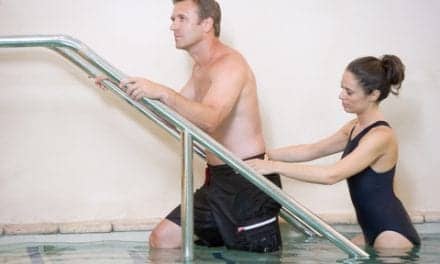As one of five courses that comprise an Vestibular Rehabilitation Competency Course series founded by Susan Herdman, PT, PhD, Skill Works Inc’s Cervicogenic Dizziness: An Evidence-Based Competency Course seeks to emphasize the link between sensorimotor and musculoskeletal disorders and patient complaints of vertigo and dizziness. Robert Landel, PT, DPT, OCS, CSCS, will serve as course instructor. Skill Works notes that other instructors will be added as needed to maintain a low student-to-teacher ratio.
The course is designed to accommodate physical therapists who have experience in managing patients with dizziness, yet also desire to improve their skill in the differential diagnosis, manual examination, and intervention of patients whose dizziness has a cervicogenic component. Working knowledge of central and peripheral vestibular disorders and their presentations are a recommended pre-requisite.
The course will discuss management of dizziness and vertigo from an interdisciplinary viewpoint. Skill Works states on its website that the neurologist therapist treating patients with primary diagnoses of vestibular dysfunction will learn to recognize coexisting musculoskeletal impairments. Additionally, the orthopedic therapist will gain the ability to differentiate manifestations of dizziness due to non-musculoskeletal causes.
According to the site, lab sessions will place on emphasis on screening for central and peripheral vestibular problems, assessment of the cervical spine with specific attention focused on potential causes of dizziness and intervention strategies. The course also places a primary emphasis on orthopedic manual physical therapy skills that are useful in managing cervicogenic dizziness.
Course objectives include gaining the ability to discuss literature relevant to the etiology, diagnosis, and management of cervicogenic dizziness, recognize the clinical presentation of cervicogenic dizziness, and differentiate it from other causes of dizziness. Additional objectives include the ability to perform a physical examination of the cervical spine relevant to cervicogenic dizziness, and interpret the results, as well as design, perform, and teach an appropriate program to address the deficiencies that a person with cervicogenic dizziness might have. Upon completion of the course, participants will also be able to perform manual interventions to the cervical spine that are appropriate for cervicogenic dizziness.
Co-sponsors of the course are the American Physical Therapy Association, Emory University, and Skill Works.
For more information and to register, click here
[Source: Skill Works Inc]





